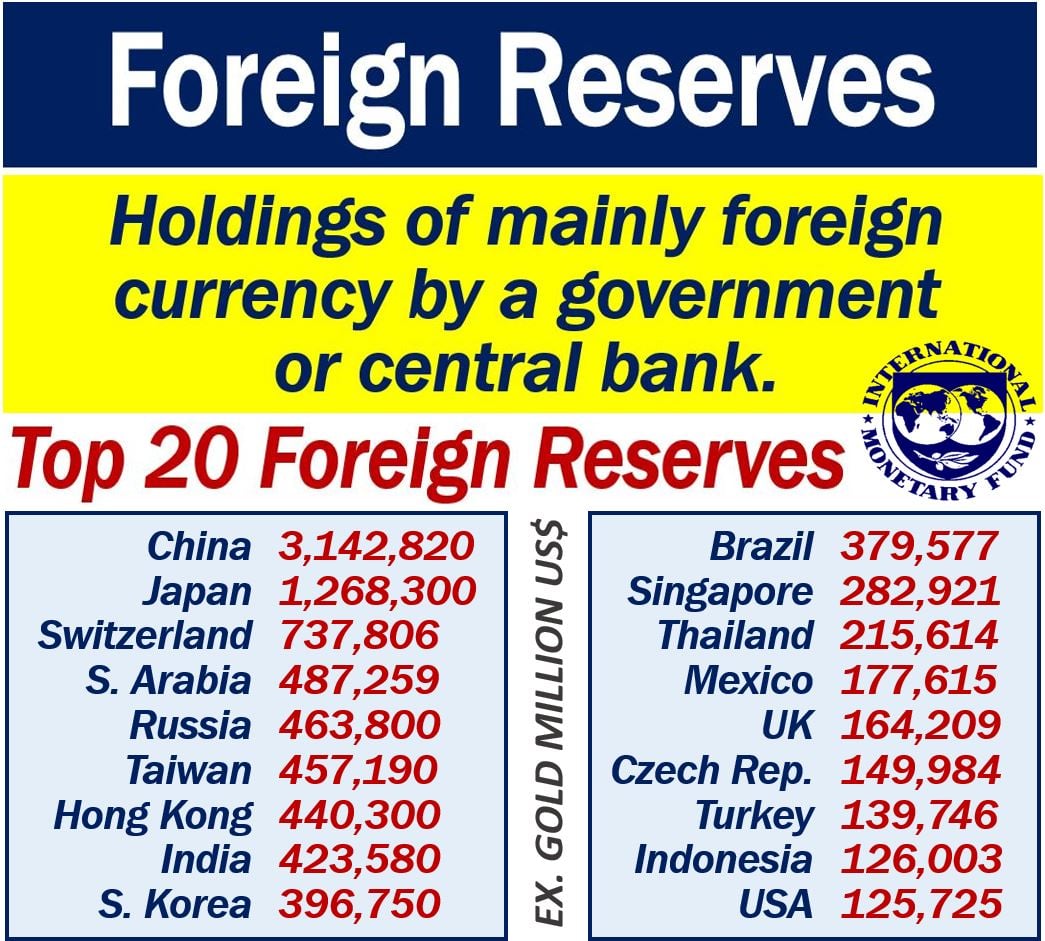‘Foreign reserves‘ refers to foreign currency that a government or central bank holds. Other terms with the same meaning are foreign exchange reserves, foreign currency reserves, or international reserves. We can also simply say ‘reserves.’ Governments try to build up reserves of hard currencies, such as the dollar, euro, Swiss franc, or pound. Foreign reserves may include treasury bills, bonds, bank deposits, banknotes, and other government securities. Some people include IMF funds or gold reserves.
A hard currency is a currency that people trust because they have faith in that country’s economy. Examples of hard currencies are the US dollar, euro, pound, yen, and Swiss franc. Hard currencies contrast with soft or weak currencies.
We can also use the term in the singular form, i.e., ‘foreign reserve.’
The Bank of England has the following definition of the term, which it refers to as foreign currency reserves:
“Foreign currency reserves comprise currency and deposits (held with monetary authorities and banks), securities (equities, bonds, notes and money market instruments) and other claims.”
“Also included are foreign currency holdings on account of nostro and call accounts and claims on counterparties on account of reverse repo transactions.”
“Other reserve assets comprise of foreign currency forwards, swap positions and reverse repo claims on counterparties.”

Why have foreign reserves?
Foreign reserves have several purposes. They exist partly to give the government resilience and also flexibility.
If a foreign currency crashes or devalues significantly, the central bank can withstand the shock. It can withstand the shock because it typically holds other currencies.
Preventing an undervaluation
The European Central Bank says that foreign reserves’ main purpose is to prevent undervaluation of the country’s currency. Put simply; it is to support the country’s own currency.
In smaller countries with economies that are not strong, foreign reserves are crucial. Backing up their currency with stronger currencies subsequently creates confidence. Specifically, it creates confidence in the local currency.
Sometimes, the central banks of several countries work together. They intervene jointly in currency markets to protect a currency that is under a speculative attack.
Preventing an overvaluation
Sometimes, expanding foreign reserves is necessary to stop a currency from rising too high.
If the British pound, for example, starts to rise too high because of speculation, the Bank of England may intervene.
It may start by announcing that it is willing to purchase foreign currency in unlimited quantities. The pound could subsequently decline because of the announcement.
Some countries have a fixed exchange rate, i.e., their currency shadows another currency or a commodity.
Then, the central bank does not have to intervene with its foreign reserves. However, this policy can be disastrous.
